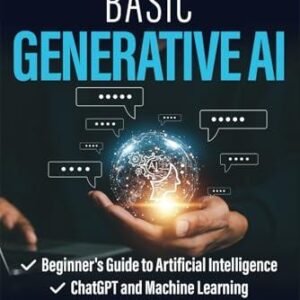- AI News
- Machine Learning
- Technology
- Robotics
- Software
- Industries
- Security
- Politics
- Entertainment
- History
- Shop
Subscribe to Updates
Get The Latest News, Updates, And Amazing Offers
Our Products
Important Pages:
- Navigating Tomorrow: The Heartfelt Call for AI Ethics Today
- Guardians of Trust: AI Ethics and Your Data Privacy
- Empowering Futures: Ethical AI’s Role in Education Revolution
- Navigating the Heart of AI: Ethics, Humanity, and Rights
- Navigating the Heart of AI: Ethics and Regulations Worldwide
- Whose Fault is it Anyway? The Heart of AI’s Mistakes
- Navigating Morality: The Heart of AI Development Ethics
- Confronting AI Bias: A Call for Ethical Responsibility
Browsing: History
AI is transforming both healthcare and finance, enhancing efficiency and decision-making. In healthcare, machine learning improves diagnostics and patient care, while in finance, algorithms streamline processes and detect fraud, reshaping these vital industries.
From Turing’s groundbreaking theories to today’s AI applications, the evolution of artificial intelligence has been remarkable. As we delve into its journey, we’ll explore how abstract concepts transformed into real-world solutions, reshaping industries and daily life.
The evolution of AI programming languages reflects the rapid advancements in technology and computational theory. From early languages like Lisp and Prolog, which revolutionized symbolic AI, to modern frameworks like TensorFlow and PyTorch, the landscape continues to transform, enabling increasingly sophisticated algorithms and applications.
AI is revolutionizing computational theory by introducing innovative algorithms and enhancing problem-solving capabilities. Machine learning models are reshaping foundational concepts and challenging traditional paradigms, paving the way for groundbreaking discoveries.
Tracing neural networks reveals their profound impact on AI evolution. From early perceptrons to deep learning architectures, these complex systems have transformed data processing, enabling remarkable advancements in natural language processing and computer vision.
AI’s evolution has profoundly reshaped human cognition, enhancing our decision-making and learning processes. From early algorithms to sophisticated neural networks, this technological journey challenges our understanding of intelligence and creativity, prompting both awe and introspection.
Exploring robotics reveals the profound connection between AI and automation. As intelligent systems evolve, they enhance efficiency and precision in various industries, transforming how we work and interact with technology. Dive into this dynamic synergy!
The journey from theoretical concepts of artificial intelligence to tangible applications has been remarkable. Today, AI is not just a buzzword; it powers industries, enhances efficiency, and transforms how we interact with technology daily.
Expert systems, pivotal in AI’s journey, emerged in the 1960s, showcasing early attempts at mimicking human reasoning. From rule-based systems to today’s advanced machine learning, these systems continue to evolve, shaping industries and decision-making processes.
The AI revolution is redefining the landscape of 21st-century technology, driving innovation across industries. From healthcare to finance, AI’s capabilities are not just enhancing efficiency but also transforming how we understand and interact with the world.




